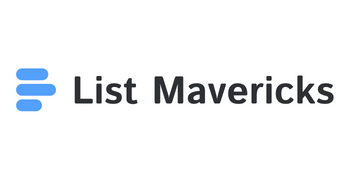A LinkedIn marketing consultant helps businesses grow by creating and managing effective strategies on LinkedIn. They handle everything from planning marketing campaigns to running ads and improving company profiles to get better results on the platform. Many companies look for these consultants to boost sales leads or grow brand awareness, and you can find skilled experts through large networks like the LinkedIn marketing consultants page.
By using the knowledge and skills of a LinkedIn marketing consultant, organizations can target the right audiences, craft strong messages, and analyze the results of their campaigns. These consultants also research the market and recommend steps that fit each company’s goals. Businesses see value in professional guidance to save time, avoid mistakes, and stand out from competitors.
Key Takeaways
- A LinkedIn marketing consultant builds and manages campaigns for businesses.
- Their skills help companies reach new clients and improve their reputation.
- Working with a consultant makes it easier to see results and meet goals on LinkedIn.
What Does a LinkedIn Marketing Consultant Do?

A LinkedIn marketing consultant helps businesses and professionals grow their brand and connect with new clients by using LinkedIn’s marketing tools. These specialists combine marketing knowledge with strong project and leadership skills. They shape branding, develop campaigns, and focus on results.
Key Responsibilities and Consultant Job Description
A LinkedIn marketing consultant builds and improves LinkedIn profiles for clients, making them more attractive to potential customers and business connections. They plan, launch, and monitor LinkedIn ad campaigns to reach specific goals such as more followers, higher website traffic, or improved engagement.
Consultants also give advice about content, guiding clients to post articles, updates, and graphics that fit their target audience. They review analytics to measure campaign success and adjust strategies as needed.
Other important tasks include training teams on LinkedIn best practices and creating easy-to-follow guides for daily use. Consultants often compare a client’s LinkedIn performance to industry standards, pointing out strengths and ways to improve. For a closer look at the consultant role, see this LinkedIn consultant job description.
Required Communication and Leadership Skills
Clear communication is key for a LinkedIn marketing consultant. They must explain complex marketing terms in simple words so clients understand strategies and results. Listening to client needs and questions is just as important as sharing knowledge.
Consultants need strong leadership skills to guide clients through changes and challenges. They must build trust, help teams work together, and encourage creative thinking. They lead meetings, give feedback, and solve problems as they guide projects to meet set goals.
In some cases, consultants also teach clients how to handle LinkedIn on their own. They use step-by-step training sessions and answer questions to build client confidence. Consultants stay calm under pressure and help keep projects on track with steady communication.
Role in Project Management
Project management is a big part of consulting on LinkedIn marketing. Consultants plan the steps needed to create and launch new campaigns, making sure each task is done correctly and on time. They set deadlines, organize resources, and track the progress of every project stage.
A good consultant uses tools and checklists to keep projects organized. They work with different people across the company, such as sales or design teams, to get the best results. When challenges come up, consultants adjust plans quickly and find solutions that minimize risk.
Note: Some consultants use basic tables or project boards to track deliverables and timelines. These project management systems help everyone see what tasks are finished and what needs more work. For more details about a consultant’s role in project management, review this LinkedIn expert and strategy guide.
Developing a LinkedIn Marketing Strategy

Successful LinkedIn marketing is built on understanding the needs of a target audience, refining brand positioning, and putting clear strategies into action. Each of these steps helps consultants maximize visibility and grow their network on the platform.
Identifying the Target Audience
A strong marketing strategy begins by defining who you want to reach on LinkedIn. Focus on specific job titles, industries, company sizes, and locations. Understanding pain points and motivations of the audience is key.
For example, a consultant might target mid-sized tech firms looking for growth advice or HR managers searching for leadership training. Use LinkedIn’s advanced search and filters to gather data about potential clients. Segment the audience into lists based on needs and interests.
It’s helpful to regularly review audience insights and engagement data. This allows marketing efforts to stay relevant and tailored. Create profiles called “buyer personas” to give a clear picture of ideal clients.
Brand Positioning on LinkedIn
Brand positioning is about how others see you on LinkedIn. Clearly define the value offered to clients and how it stands out from competitors. A complete, professional LinkedIn profile is a must. This includes a high-quality photo, a detailed summary, and a clear list of services.
Use a consistent tone and visual style that matches overall brand guidelines. This helps build trust and recognition. Share valuable content that matches the needs and interests of the target market. Pin key achievements and client testimonials in featured sections to show authority.
Join industry groups and take part in relevant discussions to become known as an expert. This can improve reputation and make the brand more memorable to potential clients.
Creating Actionable Marketing Strategies
To get results, marketing strategies must be practical and easy to measure. Start by developing a regular posting schedule. Mix short tips, case studies, and industry news to keep content fresh. Using LinkedIn’s publishing tools can help reach a wider audience.
List common actionable strategies:
- Run targeted ad campaigns
- Create and share original thought leadership
- Use personal messaging to connect with prospects
- Utilize LinkedIn analytics to track post performance
Consider aligning campaigns and content with important industry events or trends. Test different types of posts and campaign formats to see what drives the most engagement. Adapting strategies based on analytics and feedback is key for ongoing success. For more information on building a detailed strategy, visit this LinkedIn marketing strategy guide.
Implementing LinkedIn Advertising Services

LinkedIn advertising services help businesses target professionals and reach their desired audience. Using the right ad formats and campaign strategies is critical for gaining visibility and driving results on the platform.
Types of Advertising Services Offered
LinkedIn marketing consultants offer a range of advertising services to fit different goals. These services include Sponsored Content, Text Ads, and Sponsored InMail.
Sponsored Content is designed for sharing updates directly into the LinkedIn feed. These ads are useful for boosting brand awareness and sharing industry news.
Text Ads show up in the side column of LinkedIn pages. They help with quick messages and clear calls to action. Businesses looking for more personal approaches can use Sponsored InMail to send direct messages to users.
Consultants also provide services for ad setup and management, helping clients get their campaigns running smoothly. Services might include audience targeting, budget planning, and tracking results. For those unsure where to start, some specialty firms focus on helping set up a strong LinkedIn advertising presence, making the process simple for marketing teams or business owners new to the platform. See more details on LinkedIn advertising services options.
Designing Effective Campaigns
A successful campaign on LinkedIn relies on planning and knowledge of the platform’s features. The first step is to clearly define advertising objectives, such as lead generation, website visits, or brand awareness.
Consultants help businesses choose the best ad type based on these objectives and the target audience’s stage in the buyer’s journey. Effective campaign design includes compelling visuals, straightforward messaging, and a clear call-to-action.
Tracking performance metrics like click-through rates and conversions allows businesses to adjust campaigns and improve results. Many consultants use detailed reporting tools to review campaign performance and make data-driven changes.
Creative testing, audience segmentation, and continuous optimization are also important. By analyzing feedback and campaign outcomes, consultants adjust ads and targeting to improve engagement and ROI. More advice can be found at LinkedIn advertising campaign strategies.
Conducting Market Research for LinkedIn Campaigns

Successful LinkedIn campaigns rely on accurate knowledge about competitors, industry shifts, and audience behavior. Market research on LinkedIn gives consultants the data needed to adjust strategies and target customers more effectively.
Analyzing Competitors and Market Trends
Market research on LinkedIn starts by looking at competitors’ company pages, posts, and engagements. Consultants can identify what kind of content attracts attention, the language that gets more comments, and which product features other companies highlight. By observing the frequency of posts and tracking audience interactions, patterns often emerge revealing what works best in the industry.
LinkedIn’s advanced search and group features allow users to find accounts and companies in the same field. Using tools provided by LinkedIn, such as the Company Page Audience Insights, professionals can monitor follower demographics and job titles. Studying hashtags or checking the popularity of industry-specific discussions also helps identify current trends and customer concerns.
It’s useful to maintain a simple table to log key points spotted during this research. For example:
| Competitor | Post Type | Engagement Rate | Notable Trends |
|---|---|---|---|
| Competitor A | Video posts | High | Use of storytelling |
| Competitor B | Polls | Medium | Asking direct input |
This consistent analysis provides a snapshot of the current market environment.
Leveraging Insights for Strategic Decisions
Once data is collected, consultants should use those insights to refine their targeting and messaging. If certain job roles engage more often, the next campaign may focus on creating content for those professionals. When a competitor’s posts about new technology receive high engagement, similar themes could be included in the planning stage.
LinkedIn also offers advertising tools that allow for high-level audience research before running paid campaigns. Consultants can test different audience segments and preview performance using LinkedIn’s ad targeting and reporting features. This step minimizes risk and allows teams to focus only on the most effective tactics.
Lists can help organize the next steps based on research:
- Adjust content themes to match top engagement topics.
- Target or exclude certain industries based on follower demographics.
- Test new ad formats or call-to-action buttons that are working for competitors.
Translating market research into strategic moves leads to better campaign results and a clearer understanding of shifting LinkedIn trends.
Essential Skills and Qualities

A successful LinkedIn marketing consultant needs a solid set of practical skills and qualities to provide visible results. Effective communication and the habit of continued learning set top consultants apart in this competitive field.
Verbal Communication Skills for Networking
Strong verbal communication is key for building business relationships on LinkedIn. A consultant must clearly express ideas and understand client needs. This includes active listening, speaking with confidence, and adapting their message to different audiences.
In networking, these skills help consultants build trust. For example, when giving advice or pitching strategies, being clear and engaging encourages clients to listen and act. It is important to ask relevant questions and clarify information to avoid misunderstandings.
Verbal communication also extends to digital meetups, webinars, and video calls. Consultants often work remotely and must be able to present ideas and results online just as well as in person. By practicing active listening and empathy, consultants can better meet client needs and stand out as reliable partners.
Tips for Improving Verbal Communication
- Use simple, direct language.
- Practice active listening.
- Summarize key points in meetings.
- Provide clear feedback and ask for clarification.
Continuous Skill Development
The world of LinkedIn marketing changes quickly. Consultants must keep up with new tools, platform updates, and best practices. Ongoing learning helps them provide up-to-date strategies and stay relevant.
Consultants can develop their skills through online courses, industry news, and professional groups. They should seek feedback from clients and use analytics to track how their campaigns perform.
Skill development also means growing in other areas, like understanding search engine optimization (SEO), data analysis, or content creation. This makes them more flexible and able to handle a variety of client needs.
A habit of continuous improvement helps consultants stay in demand with employers and deliver better results. It shows commitment to the profession and a willingness to adapt to change.
Frequently Asked Questions

LinkedIn marketing consultants play a specialized role in digital advertising and B2B networking. Becoming successful in this space requires a mix of skills, real-world strategies, and an understanding of current digital trends. Costs, measurement methods, and daily duties also have clear expectations.
What qualifications are needed to become a LinkedIn Marketing Consultant?
Most consultants have experience with digital marketing and social media platforms. Common qualifications include a degree in marketing or communications, LinkedIn certifications, and hands-on experience with paid ads and analytics tools. They often understand LinkedIn’s algorithm and have a strong portfolio showing previous campaign results.
How can you measure the effectiveness of a LinkedIn Marketing campaign?
Consultants usually look at key metrics like click-through rates, engagement rates, lead generation numbers, and conversions. LinkedIn’s analytics dashboard makes it easier to track these results in real-time. Regularly reviewing these metrics helps adjust strategies to improve performance.
What is the typical job description for a LinkedIn Marketing Consultant?
A LinkedIn marketing consultant creates and manages ad campaigns on the platform. They also optimize company pages, develop content calendars, write posts, and analyze performance data. They may provide training for company staff and offer guidance on networking strategies for growth. More details can be found on the LinkedIn Marketing Solutions FAQ.
What strategies do LinkedIn Marketing Consultants use to increase engagement?
They use targeted content, custom audiences, and sponsored posts to reach the right people. Posting regularly, using video or images, and joining relevant groups are common tactics. Strong calls to action and personalized outreach also help boost engagement.
How much does it typically cost to hire a LinkedIn Marketing Consultant?
Costs vary based on experience, project scope, and campaign goals. Most consultants charge hourly rates or fixed project fees, which can range from a few hundred to several thousand dollars. Large companies or complex campaigns usually cost more.
What trends are currently shaping the LinkedIn Marketing landscape?
Video content, interactive posts, and AI-driven analytics are becoming more common. There is also a growing focus on B2B influencer partnerships and lead generation tools. Staying current with LinkedIn’s updates and advertising options helps consultants deliver better results. Explore more on emerging practices in this LinkedIn FAQ compilation.

